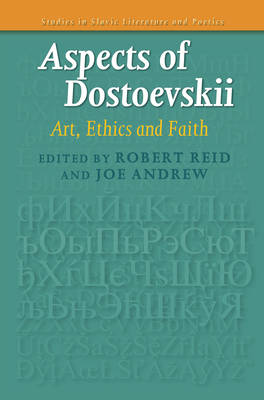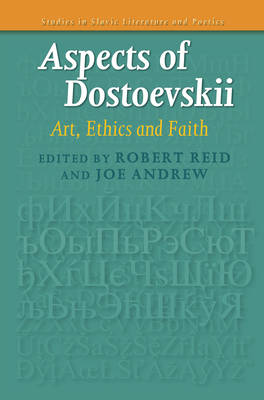
- Afhalen na 1 uur in een winkel met voorraad
- Gratis thuislevering in België vanaf € 30
- Ruim aanbod met 7 miljoen producten
- Afhalen na 1 uur in een winkel met voorraad
- Gratis thuislevering in België vanaf € 30
- Ruim aanbod met 7 miljoen producten
Zoeken
Aspects of Dostoevskii
Art, Ethics and Faith
€ 164,45
+ 164 punten
Omschrijving
Perhaps more than any other nineteenth-century Russian writer, Dostoevskii's continuing popularity rests on his contemporary relevance. The prophetic streak in his creativity gives him the same lasting appeal as dystopian novelists such as Zamiatin and Orwell whom he influenced and whose ethical concerns he anticipated. Religious themes are prominent in his work, too, and, though he was a believer, his interest seems to lie in the tension between faith and unbelief, which was felt as keenly in the Russia of his time as in our own. The nature of Dostoevskii's art also continues to be debated. The older tendency to disparage his literary method has given way to a recognition of the originality of his techniques, without which his ideological concerns would not have emerged with such thought-provoking clarity. The chapters which comprise this volume address these issues in a range of Dostoevskii's works, from shorter classics, such as House of the Dead and Notes from Underground to great novels such as Crime and Punishment and The Brothers Karamazov. This work will be of use to scholars and students of Dostoevskii at all levels as well as to those with an interest in nineteenth-century literature more generally.
Specificaties
Betrokkenen
- Uitgeverij:
Inhoud
- Aantal bladzijden:
- 320
- Taal:
- Engels
- Reeks:
- Reeksnummer:
- nr. 57
Eigenschappen
- Productcode (EAN):
- 9789042035140
- Verschijningsdatum:
- 1/01/2012
- Uitvoering:
- Paperback
- Formaat:
- Trade paperback (VS)
- Afmetingen:
- 155 mm x 235 mm
- Gewicht:
- 503 g

Alleen bij Standaard Boekhandel
+ 164 punten op je klantenkaart van Standaard Boekhandel
Beoordelingen
We publiceren alleen reviews die voldoen aan de voorwaarden voor reviews. Bekijk onze voorwaarden voor reviews.







